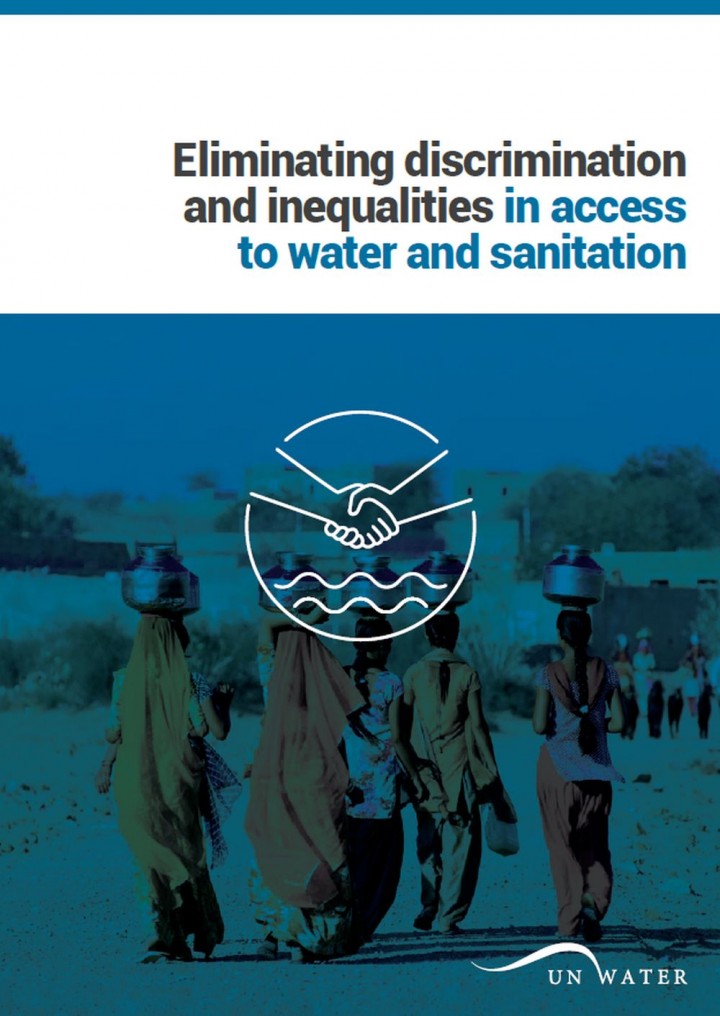Eliminating discrimination and inequalities in access to water and sanitation
Van de Lande, L. (2015)

Published in: 2015
Pages: 55
Publisher:
UN Water
Author:
Van de Lande, L.
Uploaded by:
SuSanA Admin
Partner profile:
common upload
4955 Views
88 Downloads
Location of library entry
This document UN-Water provides a summary on discrimination and inequality in the field of water and sanitation: it explains the concept of discrimination, details the human rights in regarding equity in the WASH sector and presents the course of action towards the elimination of discrimination and inequality.
Content - Summary
Patterns of marginalisation and exclusion are present all over the world, with stark and persisting inequalities in access to water and sanitation. Progress made in the water and sanitation sector does not always benefit those who are most in need of these services, in particular the poorest, people living in informal settlements and/or people marginalised on the basis of gender and other grounds.
International human rights law demands that the fundamental human rights principles of non-discrimination and equality must be respected by specific focus on those individuals, groups or communities who do not enjoy their rights fully in order to close existing gaps in the enjoyment of rights. To this end, duty-bearers and development assistance must aim at realising the rights for all, with a focus on the most marginalised and excluded. Mechanisms for conflict resolution, accountability and access to remedy must be in place, as well as free, active and meaningful participation. The human rights to water and sanitation – including the human rights principles of non-discrimination and equality – must be carefully implemented at the national level, and strong Monitoring frameworks must track progress in realising these rights.
This policy brief aims to provide guidance on non-discrimination and equality in the context of access to drinking water and sanitation, with a particular focus on women and girls. It also informs readers on the duty of States and responsibilities of non-State actors in this regard.
Bibliographic information
Van de Lande, L. (2015). Eliminating discrimination and inequalities in access to water and sanitation. UN Water
Filter tags
English Gender equality Guidelines and manuals Intersectionality Public awareness, advocacy and civil society engagement (WG9) Sustainable WASH in institutions and gender equality (WG7)















